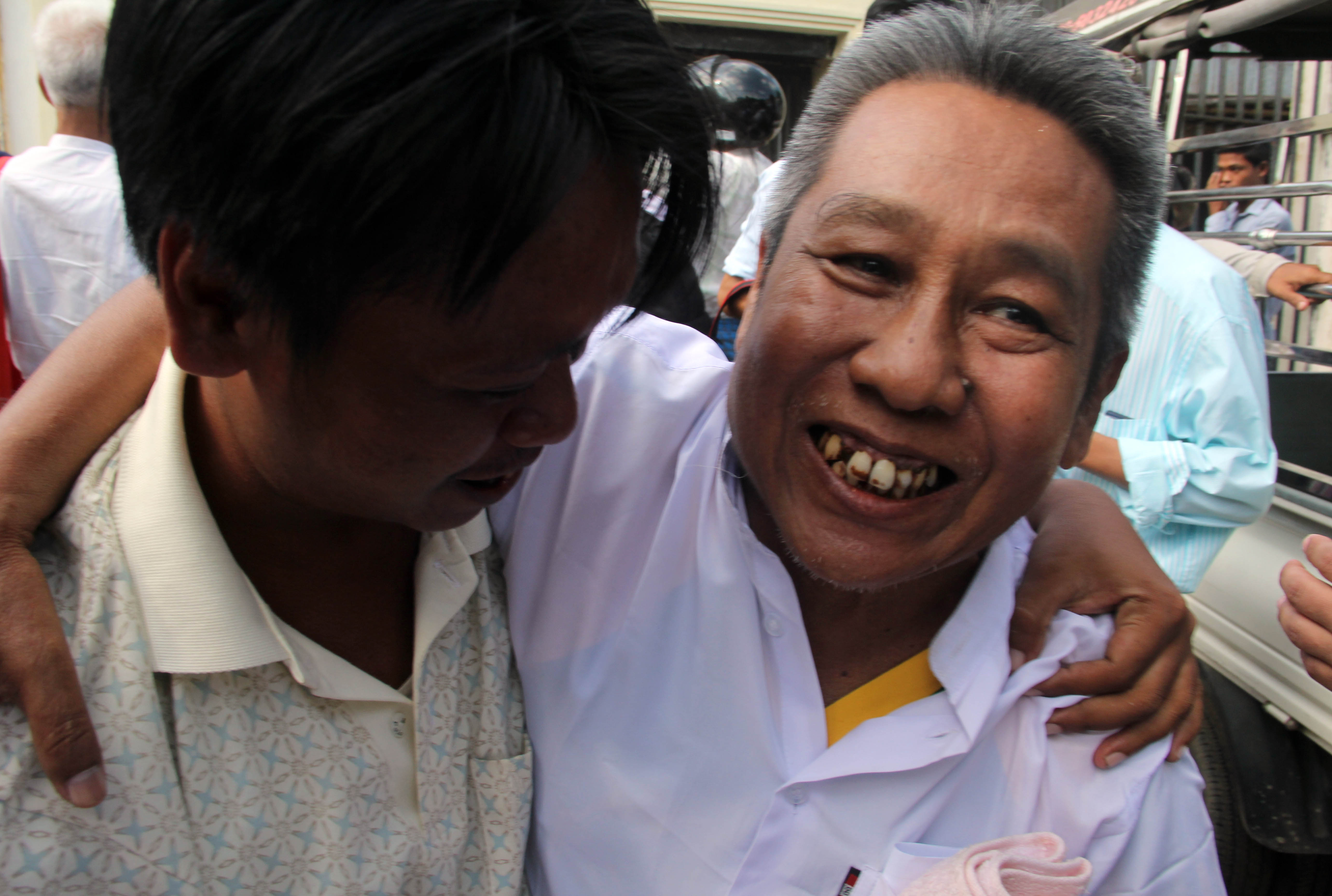
President Thein Sein ordered the release of 3,073 prisoners on Tuesday as part of a general amnesty coinciding with the full moon day marking the end of this year’s Buddhist lent.
On his Facebook page, Information Minister Ye Htut said, “The prisoners have been released on humanitarian grounds and for the sake of national reconciliation, the rule of law, and ethnic unity.”
Among those released were several members of Khin Nyunt’s former military intelligence apparatus, which was dismantled in 2004 when the spy-chief was purged by political rivals and placed under house arrest.
Bo Kyi, a former political prisoner and joint-secretary of the Assistance Association for Political Prisoners-Burma (AAPP-B), said that seven of Khin Nyunt’s intelligence clique were released, including his former personal assistant, Maj. Naing Htay.
Speaking to DVB on Tuesday, Bo Gyi said, “So far, it seems that no political prisoners were released in the amnesty.” However, The Associated Press cited Burma’s official Political Prisoner Scrutiny Committee as saying that at least 13 of the released prisoners had been jailed for political offenses.
The Political Prisoner Scrutiny Committee is an official government body that was established in February 2013 to define the term “political prisoner” and carry out a review process to determine which prisoners satisfy the definition.
Although the government indicated that it would release those individuals designated as political prisoners by the committee, DVB reported last June that some members of the committee have criticised the review process for its lack of transparency and accused the government of deciding which prisoners to release without referring to the list of individuals designated as “political prisoners” by the committee.
Moreover, Ye Mon reported in the Myanmar Times last month that the Political Prisoner Scrutiny Committee “has essentially ceased to operate” as a functional government body. Ye Mon further said that the committee “met monthly in 2013 but has convened only three times so far this year,” and that some government officials haven’t been attending recent committee meetings.
And despite being tasked with creating an official definition of the term “political prisoner,” the committee actually hasn’t even agreed on a definition yet. Meanwhile, both NGOs and governments alike have been calling on Burma to expand the definition of “political prisoner” to encompass individuals jailed for their association with armed ethnic groups.
However, RFA reported last December that the government has prohibited the committee from recognising many individuals detained without charges as prisoners of conscience—particularly ethnic Kachins and Rohingyas.
The RFA report cited an open letter issued by the International Federation for Human Rights which called on US President Barack Obama to press Naypyidaw to release all political prisoners unconditionally. The open letter also criticised the Burmese government for “continuing to arrestfarmers, activists, human rights defenders, and ethnic minorities at alarmingly high rates.”
Yet ironically, AAPP-B recently cited another RFA report which quoted Aung Thein—the Political Prisoner Scrutiny Committee secretary and one of Thein Sein’s deputy ministers—as saying that the committee might be disbanded because there are “almost no remaining political prisoners” and that the few political prisoners who remain behind bars are being detained for criminal offences, not political crimes.
Although The Associated Press reported on Tuesday that most of the pardoned prisoners were petty criminals, this probably won’t stop activists from criticising Burma’s amnesty policy, which is often described as a cynical ploy to convince global leaders that Burma is actually making progress in its transition towards a “discipline-flourishing democracy”.
NGOs often criticise Burma’s slow trickle of prisoner amnesties over time, which they say is merely designed to entice foreign countries into repealing sanctions and investing more money into Burma. Civil society has also expressed dismay that Burma’s quasi-civilian government has demonstrated a disturbing pattern of releasing prisoners prior to important diplomatic events.
Tuesday’s amnesty was issued as Burma gears up to host two important meetings of East Asian leaders in Naypyidaw next month: the 9th East Asian Summit and the 25th ASEAN Summit.
http://www.dvb.no/news/44803-0-burma-myanmar/44803

Comments